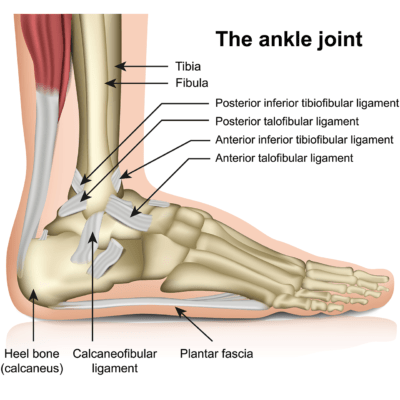How Important is it for Athletes to Fix Lax Ankle Ligaments after a Sprain?

Medicalstocks/Shutterstock
Loose ankles? We’re often told that after an ankle sprain, we should just let it heal. Even after they heal, is the laxity caused by these stretched out ligaments causing more problems? What effects do loose ankles have in athletes? A recent study sought to answer this question by looking at 86 volunteers at a military academy who were getting screening physicals. They performed manual tests looking for ankle ligament laxity and then compared the loose ankle patients with the normal ankles in tests of agility and athletic performance. What’s interesting is that none of these patients had a severe ankle problem, was limping, wore a brace, or even had ankle pain. These were just loose ankle ligaments from an old ankle sprain that these athletes had thought had completely healed. The result, the loose ankle ligament crowd had deficits in explosive power, agility and proprioception, despite ongoing participation in a sport. This last one is concerning, as proprioception means that they were unable to acurately judge where their ankle was in space at all times, meaning they were more liekely to sprain it again. The upshot? You may not know if your high level athletic performance is being hindered by bad ankle ligaments. Having just begun the “Insanity” workout program last month with my wife, I can tell how important it is to have all the parts working before attempting something this insane… How would you fix this problem without surgery? Consider prolotherapy, super concentrated platelet injections (like SCP), or stem cell injections.

If you have questions or comments about this blog post, please email us at [email protected]
NOTE: This blog post provides general information to help the reader better understand regenerative medicine, musculoskeletal health, and related subjects. All content provided in this blog, website, or any linked materials, including text, graphics, images, patient profiles, outcomes, and information, are not intended and should not be considered or used as a substitute for medical advice, diagnosis, or treatment. Please always consult with a professional and certified healthcare provider to discuss if a treatment is right for you.
